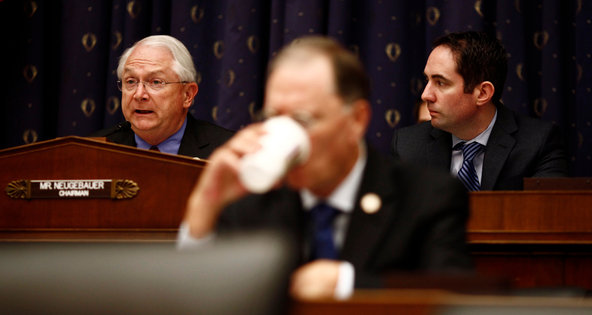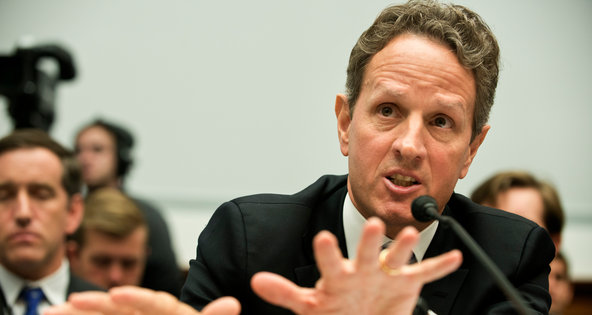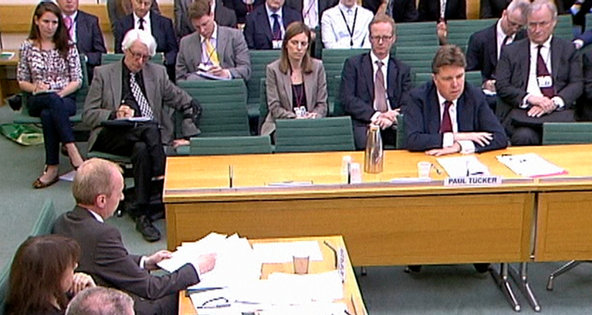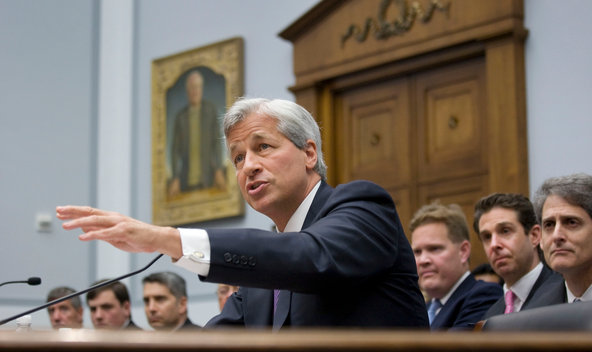Mr. Bernanke said that the Fed expected the economy to gain strength in the coming months, potentially allowing the Fed to decelerate its stimulus campaign not because it has changed its goals but because it has begun to achieve them.
But he warned that Congress itself remains the greatest obstacle to faster growth. Federal spending cuts are reducing growth this year by about 1.5 percentage points, he said. While the Fed expects the impact to diminish next year, he said there was a risk Congress would create new problems for the economy.
“The risks remain that tight federal fiscal policy will restrain economic growth over the next few quarters by more than we currently expect, or that the debate concerning other fiscal policy issues, such as the status of the debt ceiling, will evolve in a way that could hamper the recovery,” Mr. Bernanke said during a biannual appearance before the House Financial Services Committee.
Wednesday may have marked the last time that Mr. Bernanke will appear before the committee to report on the Fed’s conduct of monetary policy. He will conclude his second term as chairman at the end of January and is widely expected to step down. Members of both parties took the opportunity to praise him, although Republicans generally added that they opposed the Fed’s recent efforts.
“You acted boldly and decisively and creatively – very creatively, I might add,” said the committee’s chairman, Texas Republican Jeb Hensarling.
“You have never been boring,” said New York Democrat Carolyn Maloney.
Mr. Bernanke then did his very best to be boring, sending the message to markets that had been roiled by his comments last month that it was much ado about nothing.
The shabby condition of the economy has become the constant background for Mr. Bernanke’s public appearances. Unemployment remains stubbornly common, inflation has sagged to the lowest pace on record and growth is tepid.
Mr. Bernanke’s message Wednesday was that the Fed will begin to decelerate only if those problems continue to diminish. If unemployment stays high, the Fed will keep buying bonds. If inflation stays low, the Fed will keep buying bonds. If growth weakens, the Fed will keep buying bonds. Indeed, he revived a talking point from earlier this year in insisting that the Fed was willing to increase the volume of its monthly purchases if it decided that more stimulus was necessary.
“Because our asset purchases depend on economic and financial developments, they are by no means on a preset course,” Mr. Bernanke told the committee.
Mr. Bernanke has adopted a stronger tone in particular on the subject of inflation. Fed officials insisted for much of the year that they were not concerned about the sagging pace of inflation, which has fallen to the lowest pace on record. Prices increased by just 1 percent during the 12 months that ended in May, well below the 2 percent pace that the Fed considers most healthy. In recent weeks, the Fed has shifted its tone, emphasizing that it wants prices to rise more quickly.
On Wednesday Mr. Bernanke put inflation alongside unemployment as the reasons for the Fed’s commitment to its stimulus campaign: “Our intention is to keep monetary policy highly accommodative for the foreseeable future,” he said, “because inflation is below our target and unemployment is quite high.”
The central bank says it plans to hold short-term interest rates near zero at least as long as the unemployment rate remains above 6.5 percent. It also is expanding its holdings of mortgage-backed and Treasury securities by $85 billion a month in an effort to accelerate the pace of employment growth.

Article source: http://www.nytimes.com/2013/07/18/business/economy/fed-chairman-points-finger-at-congress.html?partner=rss&emc=rss





